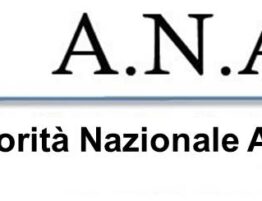The ample recourse to the system of guarantees (fideiussioni) to secure credits resulting from business activities goes hand in hand with the ever increasing phenomenon of the unlawful issuance of guarantees by non qualified parties.
It often happens that in the negotiation of contracts with new partners, apparently suitable guarantees are acquired but, at a closer look, they are issued by persons who are not authorized to perform financial activities for the specific sector or, even worse, who lack the entitlement to address the public, since they only qualify to issue guarantees to their associates.
Such risk has become even stronger because of the modifications brought by Legislative Decree of 13.8.2010 no. 141 to the TUB (Italian banking laws), which has established a new single Register, in which all those in the general list and in the special list provided by articles 106 and 107 of the original text are now recorded.
In fact up to very recently there were two lists. The one provided by article 107 old TUB included the financial intermediaries who were qualified to issue guarantees towards the public (as an alternative to bank guarantees and insurance guarantees) and also included the so called “confidi 107”. The list provided by the old article 106 TUB included finance companies which had a more circumscribed scope and included the special section of the so called “confidi minori”, consortia of collective guarantees which were not qualified to issue guarantees to the public, but only to the enterprises which were their associates.
After the abrogation of articles 106 and 107 of the old TUB, qualified intermediaries are now in a single Register in which all juridical persons which operated in the financial sector up to the reform have been called to be listed. Therefore, after the transition period only the persons recorded in the new Register will be able to issue guarantees to the public.
Hence, it is necessary to verify who has concluded the recording procedure in the new TUB single register.
Therefore, the acquisition of guarantees by third parties must always be accompanied by a careful inspection with Banca D’Italia which performs supervision services and which elaborates lists of persons without authorization to issue guarantees to the public, based on the notices received by the competent supervision offices or to generally acquired information.
Even though the formal control of the guarantors’ qualification to issue guarantees is necessary, the substantial verification of the provisions of the guarantee contract concerning terms and time of possible call on the guarantee is equally important.
Therefore, the legal safeguard of commercial negotiations should not limit itself to the main contract, but it should also examine (formally and substantially) the guarantee securing the debt, if provided by the parties. Now, even more than in the past.
(Bologna Office – Barbara Michini – 0039(0)51 2750020)









